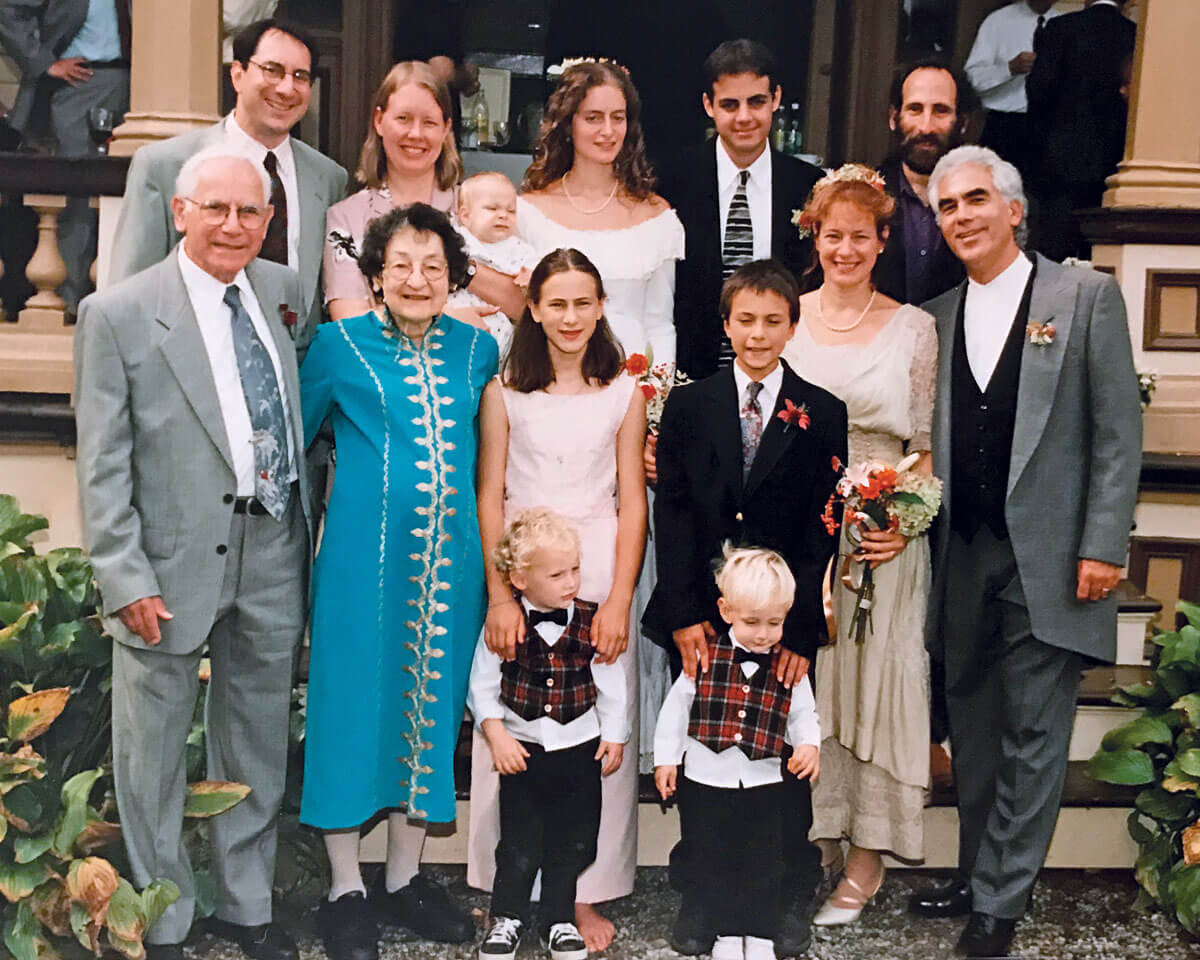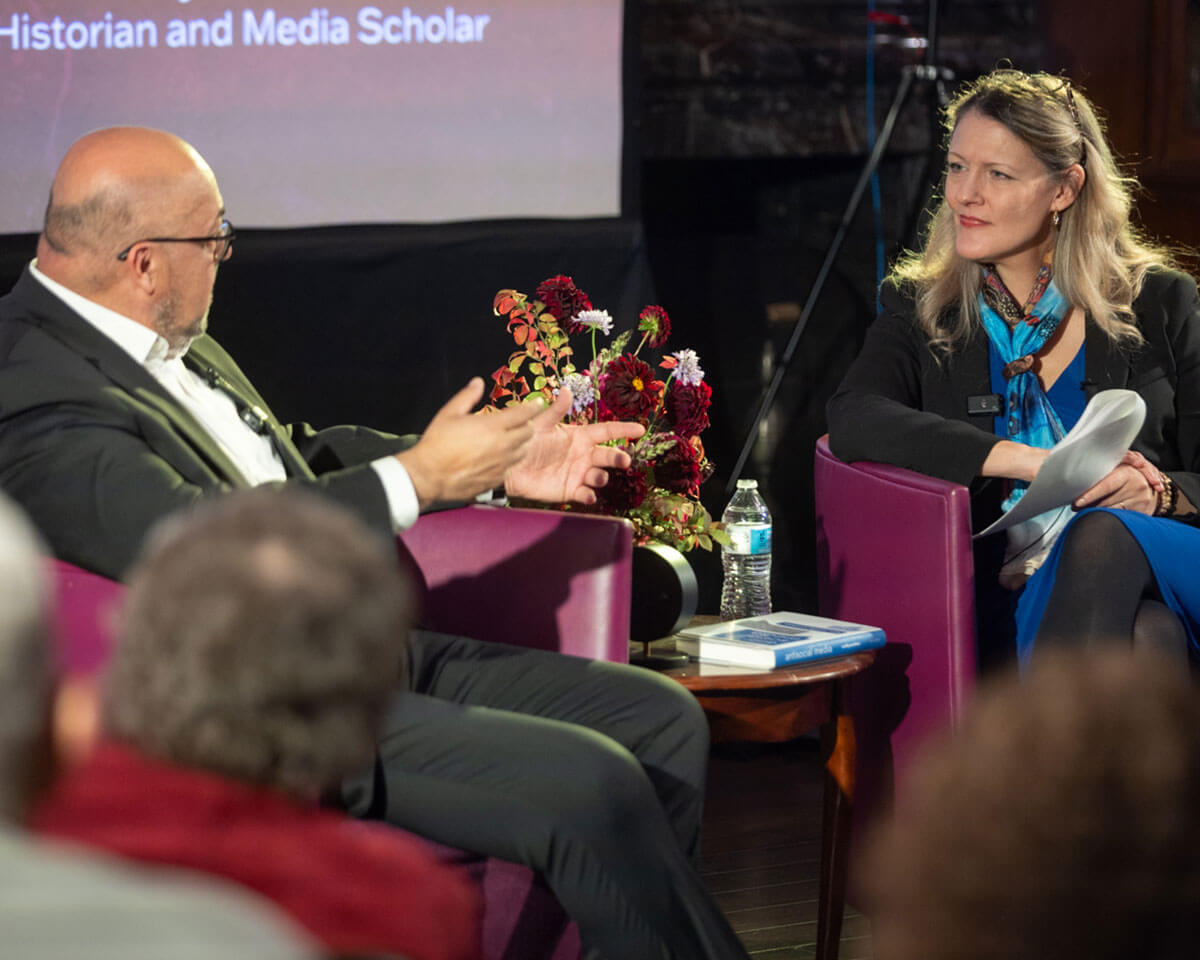In 1939, less than a decade after Brooklyn College was founded, the school’s math team, led by its president Hyman J. Zimmerberg ’41, won the second annual William Lowell Putnam Mathematical Competition, one of the most prestigious (and difficult) university-level math competitions in the world, with scholarship prizes for schools and individual competitors, and hard-won bragging rights. Zimmerberg, as part of a three-man team, went on to win again in 1941, besting powerhouses such as MIT and the University of Pennsylvania.
Zimmerberg earned his bachelor’s degree in 1941, left New York for the University of Chicago, and went on to have a long and fruitful career, eventually joining the faculty of Rutgers University, where he remained until his retirement in 1991. He died at the age of 98 in 2019, but he never forgot his alma mater. Recently, Zimmerberg’s daughter, Betty Zimmerberg, along with his sons Joshua and Morris (Moe) Zimmerberg (eldest daughter Sharon died from ovarian cancer at the age of 21) have carried out their father’s wish of making a gift to Brooklyn College by establishing an endowed fund in his name in support of the Department of Mathematics.

The medal that Hyman and his fellow students received for winning the William Lowell Putnam Intercollegiate Prize in mathematics.
The Hyman J. Zimmerberg ’41 Fund for Undergraduate Research in Mathematics will support undergraduate students in pursuit of a math degree. The Zimmerbergs’ wish in establishing the fund was that the gift be used to connect Brooklyn College’s math majors to the wider math community, covering costs such as membership dues for math organizations, and fees and expenses to attend conferences, meetings, and competitions, in addition to paying for textbooks when students have that need.
“My father really credited Brooklyn College for the trajectory of his career and our family,” says Betty. “The fact that there was free tuition, and that he could go to Brooklyn College and get an education—he really wanted to give back.”
“We’re thankful for this generous acknowledgment coming from an alumnus who so long ago put Brooklyn College on the map as a school strong in mathematics” says Jeff Suzuki, chair of the Math Department. “All these years later, Hyman Zimmerberg continues to support our Math Department, this time through a gift that will help greatly to enrich the education of our undergraduate majors for generations to come. Participation in the Putnam exam and other extracurricular mathematical activities helps our students engage with the larger community of mathematicians.”
Born on the Lower East Side of Manhattan in 1921 to Morris Zimmerberg and Manya Milner Zimmerberg, immigrants from Poland, a two-year-old Hyman moved with his family to Bay 22nd Street in the Bath Beach section of Brooklyn, about 3.5 miles or a 20-minute bike ride from the college. Morris, who worked at a factory making women’s handbags, was very active in the union. This would figure later in Hyman’s life.
“There was the family of five—my grandparents, my father and his two sisters, and an uncle—all living in a one-bedroom apartment,” says Betty. And although the Great Depression was in full swing, and her dad stood in bread lines for the family, he said that his boyhood was “the most fun ever. He was so happy. He told us how he loved to played stickball, and how everybody had their radio sitting on their windowsills and he could hear the baseball game up and down the street,” she adds.
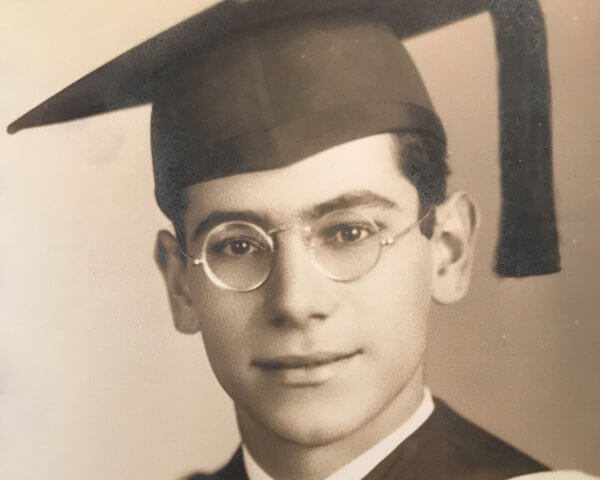
Hyman Zimmerberg ’41
Still, there was a serious undercurrent that ran through his childhood—financial struggles and the trouble brewing in Europe. Hyman was 12 when the persecution of the Jewish people became official Nazi Party policy. “On Sundays, he used to go with his father from cousin’s house to cousin’s house collecting money to send to Eastern Europe to get relatives out of Poland, one at a time,” Betty says. The family succeeded in getting some of Morris’s relatives out, but Manya lost her entire family to the Holocaust.
Manya and Morris believed wholeheartedly in the future and that education was key. Nearby Brooklyn College offered a good one for free, so Hyman went to study mathematics. The Zimmerberg children’s Brooklyn College connection does not start only with their father. Their mother, Hyman’s future wife, Helen Yarmush Zimmerberg ’44, who grew up in Bensonhurst, the next neighborhood over from Bath Beach, attended the college, too, again drawn by the fact that there was no tuition.
“When I say they met at college, what I mean is that it was not actually on campus,” says Betty. “They met during the summer break while they were attending college, at a Jewish holiday camp in the Catskills. They met while blueberry picking and fell in love. Dad said that he could talk to her; there were other beautiful women, but she had a brain.” (Helen Zimmerberg died in 2001.)
A Social Consciousness
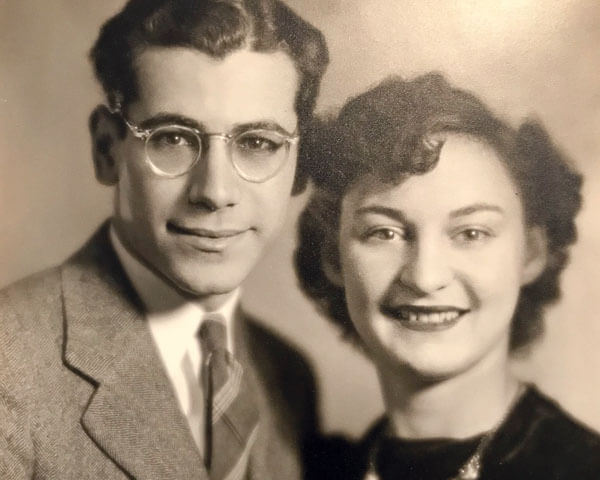
Hyman and Helen Zimmerberg’s wedding portrait, 1943
After graduating, Hyman went to the University of Chicago to earn his Ph.D. in mathematics. Helen followed him to Chicago in 1943, and they married (she would earn her bachelor’s degree in biology a year later). Victory in Europe against Hitler and the Axis powers was two years away. While working on his Ph.D., Hyman taught trigonometry to soldiers learning meteorology so they could guide air corps bombers over Europe. “Dad had very bad eyes and flat feet, so he wasn’t accepted into the military,” says Betty. Helen got a job working on the top-secret Manhattan Project, doing research on the biological effects of radiation that would be caused by the world’s first nuclear weapon. The couple would go off to their respective jobs, but Helen could never tell her husband exactly where she was going (under the athletic field on the University of Chicago’s campus, it turns out) or what her job entailed.
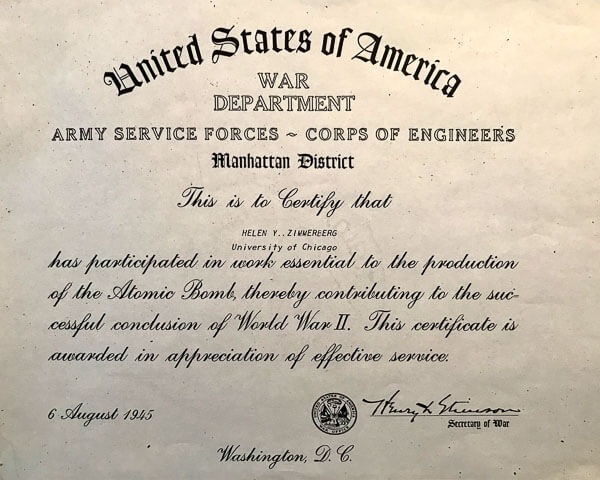
A certificate from the U.S. War Department acknowledging Helen Zimmerberg’s contribution to the World War II war effort, 1945.
Social consciousness was important to the Zimmerbergs. After Hyman received his Ph.D. in 1945, the couple spent a brief time down South, he on the faculty of the University of North Carolina at Chapel Hill, Helen in graduate school at Duke University, where she would earn her master’s degree. The Jim Crow atmosphere was not for the young Brooklynites, so when Hyman accepted a position in the Math Department at Rutgers College in New Brunswick, New Jersey, and Helen became pregnant with their first child, Sharon, they moved back north. “Later, my parents took my sister and me down South because they wanted us to see things like the separately labeled water fountains,” says Betty. “They wanted us to understand why they didn’t stay in the South and how important it was to fight segregation. It made a big impact.”
Helen became a stay-at-home mom, until the fourth Zimmerberg child, Moe, was eight years old. Not able to find a lab position, she taught science as a substitute at a local high school, then went on to work as a librarian at the nearby Squibb (now Bristol Myers Squibb) research facility. In 1976, she was hired as the biology librarian at Princeton University and remained there, aiding faculty and graduate students in their research, and publishing a series of important bibliographies funded by the NIH until her retirement in 1993 at the age of 70. “My mom went back to work because she was a real thinker; it was quite a commute to Princeton every day. When she got cancer, non-Hodgkin’s lymphoma, around 1975, she kept working in between chemotherapy sessions, even climbed Machu Picchu in Peru with my dad. She survived; she was a strong survivor,” says Betty.
Hyman Zimmerberg forged a successful career at Rutgers. His published work was on algebraic boundary value problems in the field of analysis, but he was especially proud of developing and directing the National Science Foundation Undergraduate Research Participation Program in Math at the college. A popular teacher and faculty member (although “he was never someone to pass himself off; he was humble”), Professor Zimmerberg was best known on campus for his support of academic freedom. He founded the Rutgers chapter of the American Association of University Professors, and when fellow faculty member and historian Eugene Genovese spoke out against the Vietnam War at a teach-in on campus in 1965, Zimmerberg helped block the history professor’s firing. Betty remembers being taken to one of the very first teach-ins at the college, and that her parents went on civil rights protest marches. “Mom and Dad were really interested in us getting value lessons,” says Betty.
The Zimmerbergs’ Legacy
Betty’s memories of her childhood and family life include a portrait of her father as a kind of Renaissance man, albeit an active one. He bicycled to work and back, weather permitting. He pitched for the department softball team, and kept a big garden. “If something was broken, he would figure out how to fix it himself. He made furniture. Our house in New Jersey was just a shell when it was first built, we couldn’t afford to have the interior done. So dad—this Jewish boy from Brooklyn—constructed the interior.”
“We went camping every summer—all the national parks out West,” says Betty. Hyman spent a sabbatical year in Israel with Helen and their son Moe.
Hyman took on a new avocation after the death of his older daughter. “Sharon was our leader in all our childhood adventures,” says Betty. “It was devastating. Dad took up running and it really helped him. He ran the New York City marathon five times. There was a lot of 10k or 5k races. He had all these trophies because when he turned 70, he was the youngest in his age class!”
“One thing my younger brother Moe wanted me to emphasize is the role of Brooklyn College,” says Betty. “It is important for him that we let everyone know that the college was not just the story of my parents, but the story of their future and that of first-generation immigrant families.” Hyman and Helen Zimmerberg’s educations in math and science shaped their careers and those of their children.
“My parents had high expectations of their daughters and their sons, and they both served on multiple committees at their respective institutions to promote the careers of women in mathematics and the biological sciences.”
Betty, who earned her bachelor’s degree in history and science from Harvard and Ph.D. in neuroscience at CUNY Graduate School, recently retired as a professor of psychology and neuroscience from Williams College in Massachusetts after 31 years. Her research was on the effects of alcohol, drugs, and stress on the developing brain. “So I was a lab scientist like my mother,” she says. Her brother Joshua, a graduate from Harvard (a B.A. in biochemistry) and Einstein Medical College, is the associate scientific director and section chief of integrative biophysics at the National Institutes of Health. “‘Moe, named after my grandfather, earned his bachelor of science in perceptual psychology at MIT and is now cofounder and a faculty member at the Tutorial School in Santa Fe, New Mexico.” Sharon, Betty says, was majoring in biology at the University of Wisconsin before she fell ill.
Today, the present generation of Brooklyn College math majors will benefit from the legacy of a young math whiz from long ago. “I had many discussions with my dad about this gift to Brooklyn,” says Betty, “and he wanted to make sure that math majors were supported and encouraged to go on to graduate school.” And perhaps, like Hyman, and his wife, impact the lives of future generations of mathematicians and scientists.
Return to the BC Magazine

